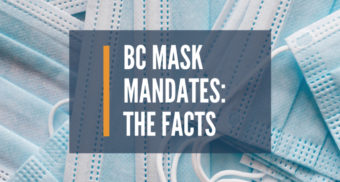Canada Emergency Wage Subsidy: The Facts

What was the Canada Emergency Wage Subsidy?
The Canada Emergency Wage Subsidy (CEWS) was a financial assistance program introduced by the Canadian government to support businesses impacted by the COVID-19 pandemic. Its primary goal was to help companies retain their employees on the payroll, even during periods of reduced business activity.
Below is a simplified breakdown of the program and its implications for businesses and employees:
Key features of the CEWS
- Program Duration: The CEWS was active from March 15, 2020, until October 23, 2021.
- Subsidy Rate: Eligible employers received a subsidy of 75% of employees’ wages, up to a maximum of $847 per week per employee.
- Eligibility Criteria: Businesses needed to demonstrate a revenue decline of at least 30% in March, April, or May 2020 compared to the same months in 2019.
Eligibility requirements
- The subsidy was open to:
- Individuals operating a business
- Taxable corporations
- Partnerships consisting of eligible employers
- Public bodies like municipal governments and Crown corporations were not eligible.
- Non-profit organizations and registered charities had specific measures, which were detailed separately by the government.
Application process
- Monthly Applications: Employers had to apply each month, showing the requisite loss in year-over-year revenues.
- Application Portal: Applications were submitted through the Canada Revenue Agency’s My Business Account portal.
Impact on other benefits
- Interaction with CERB: Employers could not claim the CEWS for any employee who was receiving the Canada Emergency Response Benefit (CERB) during the same period.
Compliance and penalties
- The government emphasized compliance, with strict penalties for those trying to exploit the system.
- Employers were required to repay any amounts received through the CEWS if it was later determined that they did not meet the eligibility requirements.
Conclusion
The CEWS was a crucial part of Canada’s economic response to the pandemic, aiming to stabilize employment and ensure that businesses could resume normal operations post-crisis. While the program has ended, its effects on maintaining employment during the pandemic were significant. For more information on current government support programs, employers and employees should visit the official government website or consult financial professionals.
For more information on employment rights during COVID-19, consider reading about COVID-19 and Employment Rights and Long-term disability claims and COVID-19.
Comprehensive services for employees
The employment lawyers at Samfiru Tumarkin LLP have successfully represented thousands of non-unionized individuals in various regions across Ontario, Alberta, and B.C.
In addition to severance package negotiations, we can assist you on a broad range of employment matters, including:
For a comprehensive overview of employment, disability, and personal injury law, explore our Law Essentials page.
If you are a non-unionized employee who needs help with a workplace issue, contact us or call 1-855-821-5900 to get the advice you need and the compensation you deserve.




